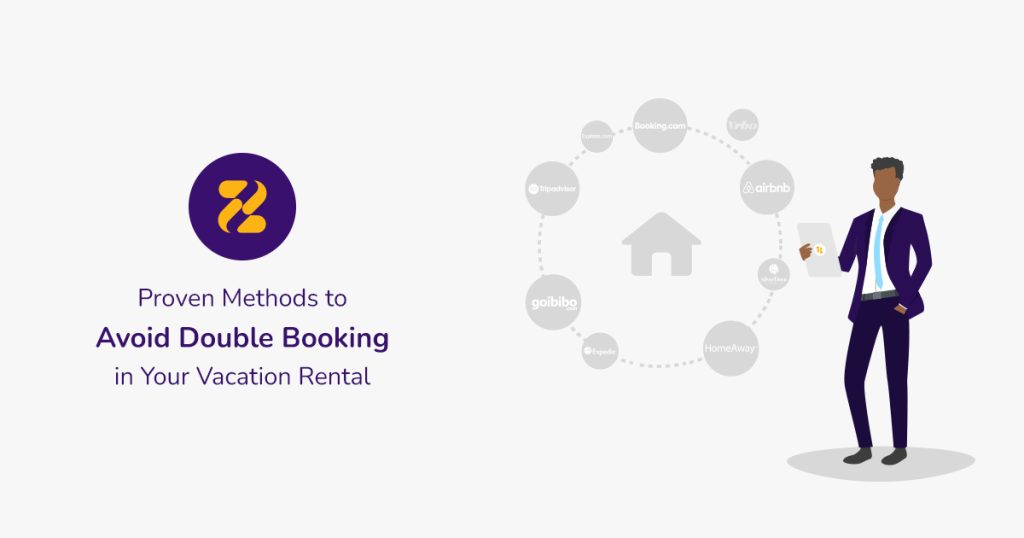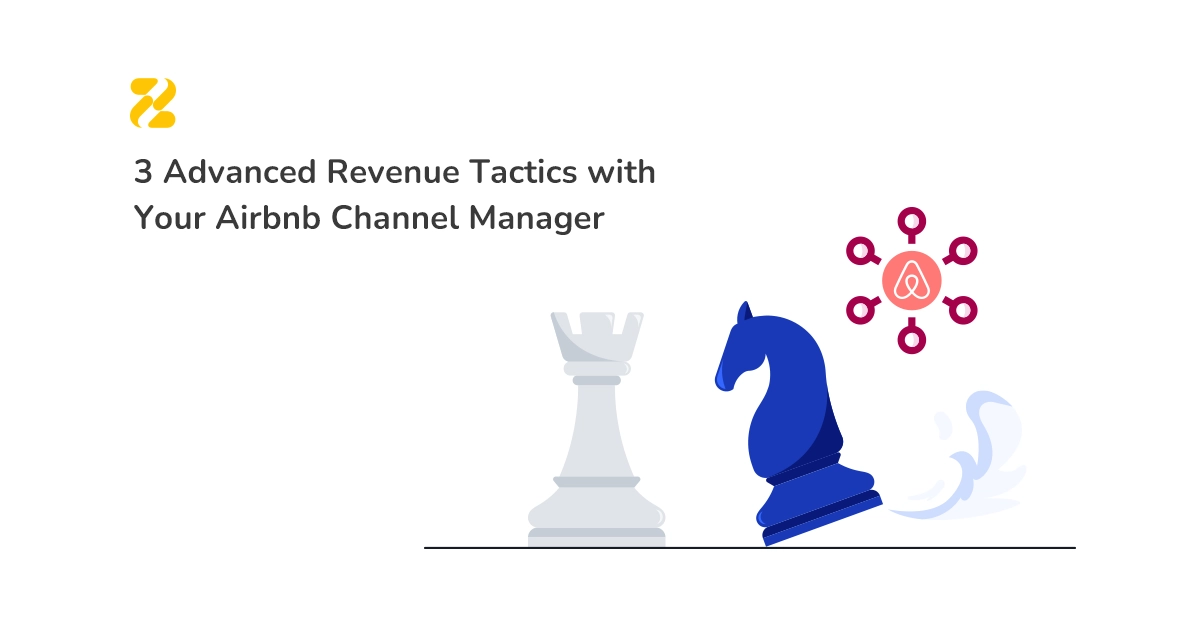Capturing as many bookings as possible and filling your vacation rental’s occupancy calendar may be your ultimate goal. However, using several channels and OTAs to advertise your rentals could lead to what is commonly known as vacation rental double booking. To avoid double booking, it’s essential to implement strategies that synchronise all your booking platforms and keep your calendar updated in real time.
We have gathered the necessary information around the topic of vacation rental overbooking. You will learn how overbooking can happen and what are the common ways to avoid double booking.
Table of Contents
How Does Vacation Rental Double Booking Happen?
Double bookings, also known as overbookings, are not only a nightmare for vacation rental managers but also for travellers. Double bookings happen when you sell your short-term rental to more than one guest during one specific period. Although overbookings occur frequently by accident, they leave a substantially negative impact on your business reputation.
There are many outlets for the promotion of your rentals. So, you are more likely to fail to keep track of every platform you have listed your rentals. There is a correlation between increasing exposure and getting more double bookings.
Double booking is a common situation that may happen because of:
- Listing on multiple booking websites
- Having several accounts on one booking platform
- Changes in the check-in/check-out dates by the guest
- Listing as both separate rooms and the entire house at the same time
- Delays in updating availability status after a booking is made
- Misunderstanding and human errors
- Losing track of bookings
Consequences of Double Booking in Short-Term Rentals
There are several consequences when a vacation rental double booking happens.
- Double bookings make bad impressions with a severe impact on reputation as more negative reviews arrive.
- Losing money and having to pay extra fees are the other side effects of overbookings.
- You might have to find a new place for the guests left without a place to stay. You should provide the same standards and pay for the differential fee or transportation.
- In many cases, you have to refund the guest and wait for the very low review scores on as many outlets as the unhappy guest can get their hands on.
Each of the popular booking platforms have specific rules and policies for this situation:
- Airbnb makes you pay a host cancellation fee and may put an automated public review on your profile. Facing repetitive double bookings and cancellations will also affect your Superhost status.
- Booking.com will not charge you a host cancellation fee. But, you will need to find another place for your guest and pay the transportation and differential costs. You may also get a low review as punishment.
- With Expedia, you will get a low review score that will affect your visibility and exposure on the websites. So, you will not get as many bookings as before. Also, they will charge you for the guests’ relocation costs.
- Like Airbnb, Vrbo also charges fees for double-booking cancellations. This can lead to negative reviews, lower ratings, and potential removal of the listing from the platform if the issue persists.
How to Avoid Double Booking
You definitely would like to list your property(ies) on every booking platform to maximise your business exposure. But, keeping an eye on each and every one of these platforms is a very stressful and time-consuming job.
No matter how careful you are, human mistakes can always happen and hurt your business reputation. Like everyone owning a vacation rental, you want to run your business smoothly and avoid double booking.
For this, we have gathered some methods and solutions to help you avoid double booking:
Implement a Channel Manager
A channel manager can resolve all the complicated difficulties mentioned above. It automatically synchronises all the booking platforms’ calendars where you listed your rentals. You will get an accurate online availability calendar with real-time updates, no matter how many times you have listed your property.
With a channel manager, you can broadly and fearlessly list your short-term rental on any platform you like, lean back and never think of dealing with the load of work managing a vacation rental business brings. By integrating with a powerful channel manager, you can take advantage of extra visibility and exposure, more bookings, less time wasted on coordinating, and finally not having the nightmare of vacation rental double bookings.
Use a Centralised Calendar
A centralised calendar provides a single, unified view of all bookings across different platforms. This helps property managers see all reservations in one place, reducing the chance of overlapping bookings.
Establish Clear Check-In and Check-Out Policies
It’s important to set and clearly share check-in and check-out times with your guests. This means deciding on specific times for arrivals and departures and leaving enough time between bookings for any last-minute changes.
Having enough buffer time helps prevent overlapping bookings. It gives you time to get the property ready for the next guest, which is key for a great guest experience.
Ensure Efficient Booking Management with Regular Audits
Frequent auditing workflows can help avoid double bookings by ensuring that all processes involved in managing bookings are functioning correctly. Regular checks can identify any errors or discrepancies in the booking system that might lead to double bookings.
By finding these errors early, you can correct them before they cause problems. Ensuring that the data entered into the system is accurate and up-to-date helps prevent conflicts.
In conclusion, avoiding double bookings is key to keeping your vacation rental’s reputation shining and your guests happy. By leveraging a channel manager, using a centralised calendar, setting clear check-in/check-out policies, and performing regular audits, you can dodge the double booking nightmare.




